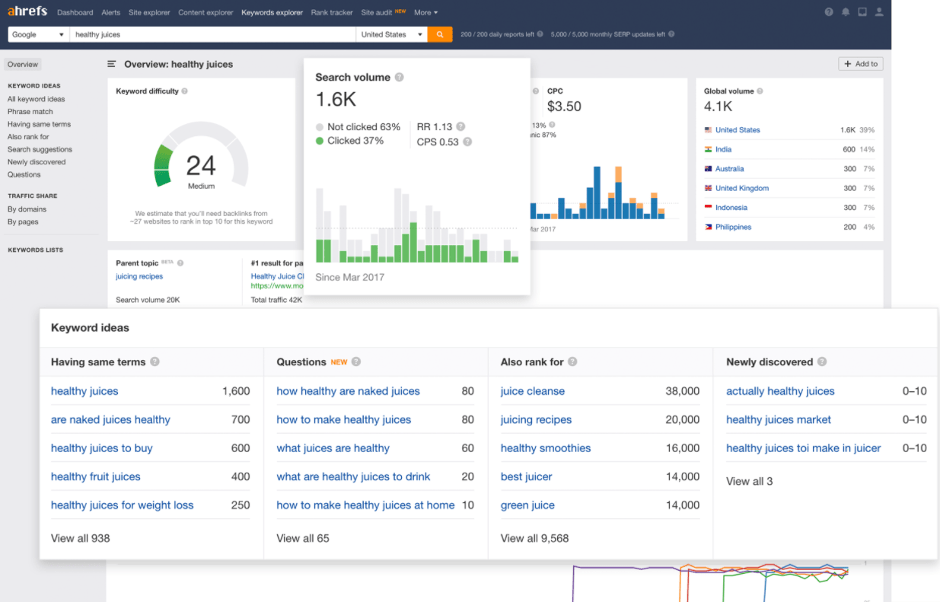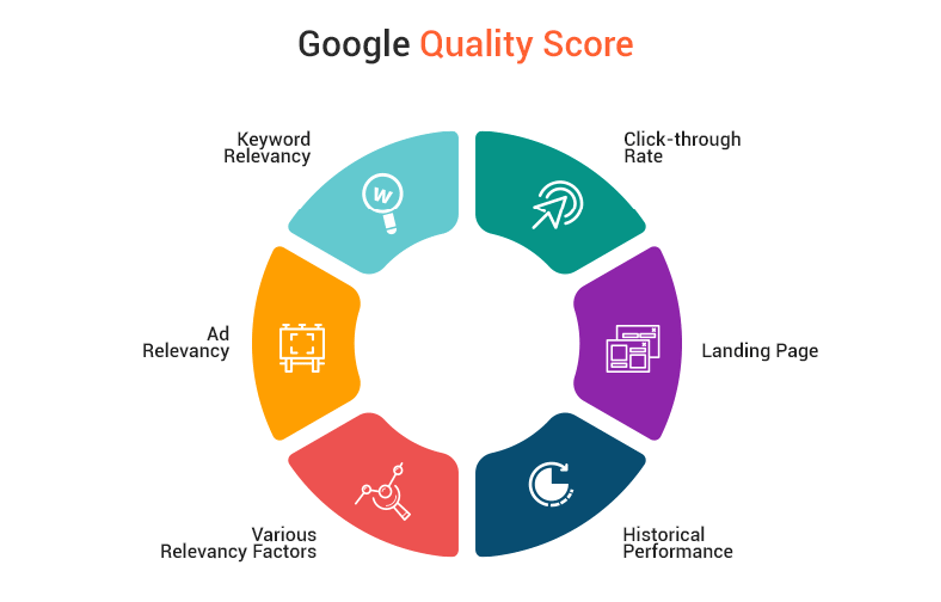Digital marketing has taken business advertising by storm in the modern world. For most companies, the advertising model is designed to boost traffic, increase conversion rates, and build brand recognition, all the while maintaining a fixed budget. This can be achieved perfectly through a PPC campaign.
PPC or pay-per-click is a digital marketing strategy that involves a contract between an advertiser and a publisher. In this campaign, an advertiser pays the publisher each time the ad is clicked by a user. This works mainly for popular search engines, like Google, Bing, and Amazon, etc.
In these search engines, the advertisers bid on keyword phrases that would appeal to their target audience. This form of marketing has gained a lot of traction due to its reasonable implementation and success possibilities.
Since PPC has the same conditions for all enterprises in all fields, it is easy to implement while sticking to your budget. The best results can be achieved through a few tips and hacks that will set your campaign apart and lead to highly positive results.
Let’s check out the top 7 PPC hacks that every PPC agency and expert must be aware of in 2021.
1. Choose your budget wisely
Finalizing your budget is a key task during your PPC campaign planning. The budget should reflect not only the money associated, but also the quality of your campaign content and your objectives from it. Hence, thorough research is necessary before zeroing in on anything.
Some important considerations include whether your campaign is long-term or short-term, what’s its type and target audience, what kind of content you’re pushing, and so on.
These strategies need constant evaluation and improvement, depending on the PPC’s performance. You have to learn from your mistakes and tweak your approach accordingly. This will need significant budget planning and targeted execution.
If your budget is restricted, you can start small and expand in areas where your campaign is performing well. You also have to choose between platforms such as LinkedIn, YouTube, Facebook, Google Ads, etc., based on the specific interests of your target audience.
2. Insert long-tail and negative keywords
A significant number of consumers are not comfortable with the way their data is shared. They want more transparency, choice and control over how their data is used.
As the emphasis on user privacy is growing, third-party cookies are becoming a major threat to targeted advertising and marketing.
Safari and Mozilla don’t support third-party cookies any longer and these cookies will be even blocked by Google Chrome in 2022.

While choosing keywords and monitoring their effectiveness, always ensure that you let your high performers get the space to establish themselves. Don’t change keywords frequently, but don’t keep your campaign stagnant for a long time, either. Balance is the key; customize your PPC by keeping the performing keywords as a base and building on them.
3. Plan a running schedule
The primary instinct of a digital marketer may be to ensure maximum visibility of their PPC campaign, leading them to run the campaign around the clock. However, this creates more problems than solutions.
The ideal strategy would be to plan an optimal schedule to run the ads. This will ensure sustainable resource deployment, as well as a smart approach towards your audience.
Find the perfect time to start the PPC, depending on your target audience’s browsing patterns and geographical location. Once you figure out the ideal time, your PPC campaign is bound to see more success in a short time.
While doing this, you should also make sure your offerings are optimized for a mobile viewing experience. Cracking this market will lead to better and easier reach, more brand-building, and higher accessibility with your viewers.
4. Monitor clicks and forecast data
Nowadays, search engines can easily determine whether the traffic is organic or generated by a bot. And you do not want to get a bad reputation in this regard.
Thus, you should monitor your clicks for click-rate quality and ensure you attract more organic traffic. There are several tools that help filter invalid clicks. You can use them for branding your website as a fair player, which will give you higher precedence on Google in the long run.
Another pro tip for your PPC is to forecast data. This refers to the way you analyze data and use it to make future predictions. If you collect enough data to make a well-informed decision, it will reduce the risks of your campaign and take you on avenues that ensure success.
Through this, you can guide users towards better decisions and present them with an idea of your performance in the long term. Additionally, try to keep your campaign flexible to incorporate user feedback and optimize effective strategies.
5. Apply smart bidding practices
Your bidding strategies are crucial to your campaign’s success. To find a suitable strategy, you should analyze your goals, budget, and audience while keeping in mind that each strategy works differently. Your aim must be to target the best clicks for your business, not buying clicks in bulk.
Bid multipliers can help achieve this by putting more value in clicks coming at specific times of the day. If you’re selling a professional service, it’s always a good idea to attribute greater value to clicks during office hours as your buyers will be more active at that time. Similarly, there are several other PPC trends aimed towards effective targeting and automated bidding in 2021.
You can set bids based on timing, location, the device used, and so on. Tailoring your offerings for these specific niches will help your business reach the right people at the right time, who will be more eager to make a purchase. Hence, use bid modifiers smartly and efficiently.
6. Optimize quality score
Quality score is a metric used by major search engines like Google and Bing. It influences ad ranks and the cost of the PPC. Each ad is given a position on the search engine based on its bid and its quality score. So, you should pay extra attention to it.
Quality score affects your search ranks, cost-effectiveness, and overall campaign performance. If you have a high score, it means your brand is legit and has a good record. Thus, Google will reward you with higher ad positions at lower prices.
It also determines how often your ads appear on users’ screens, and for which keywords or search behavior. It also impacts your Impression Share, resulting in better brand value and lower costs.

To optimize quality score, make sure your content is creative and clean, devoid of redundant keywords and irrelevant ads. Use branded keywords terms and eliminate strategies that have failed to fetch results.
7. Use remarketing & in-market segments
Mastering the art of remarketing leads to major success in PPC campaigns. Mostly, users visit a certain website but leave without taking the desired action. This leads to low conversion rates and lackluster results.
To remedy that, you have to focus on remarketing. These efforts should be targeted towards these wandering visitors, depending on their last action on the website. If someone opened the registration page but left without registering, remarketing reminds them of the benefits of signing up. Basically, you urge the customer to complete their action and lead to a conversion.
Remarketing, however, has certain challenges. If you run a small business that doesn’t have enough visitors, you can use in-market segments to target people who are looking for similar services. For instance, if you search for a pair of shoes but are unable to find your size, often you’ll find other websites showing shoe options popping up in your internet feed.
You might end up finding your fit and size from another website, and go ahead with the purchase. This is how in-market segments work with PPC.
Final Thoughts
PPC campaigns can be executed successfully through a lot of hacks. You can also hire PPC experts who will add that extra edge to your marketing approach. In case you want to take a leap on your own, keep our smart tricks in mind while planning your strategy.
About the author
Sheryl is the Sr. Marketing Specialist at Uplers who has a great experience in designing well-defined user journeys across the digital marketing domain. She leverages her digital marketing expertise to help businesses draw significant ROIs.
Don’t forget to share this article


